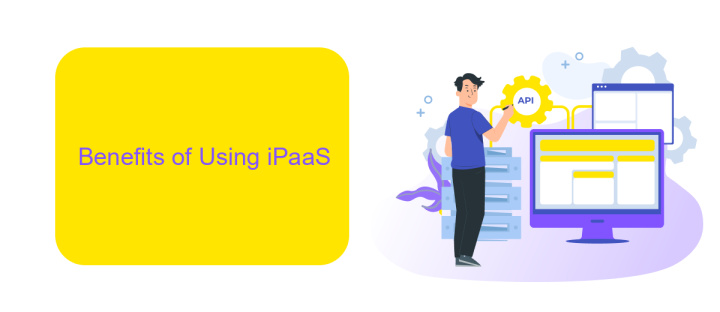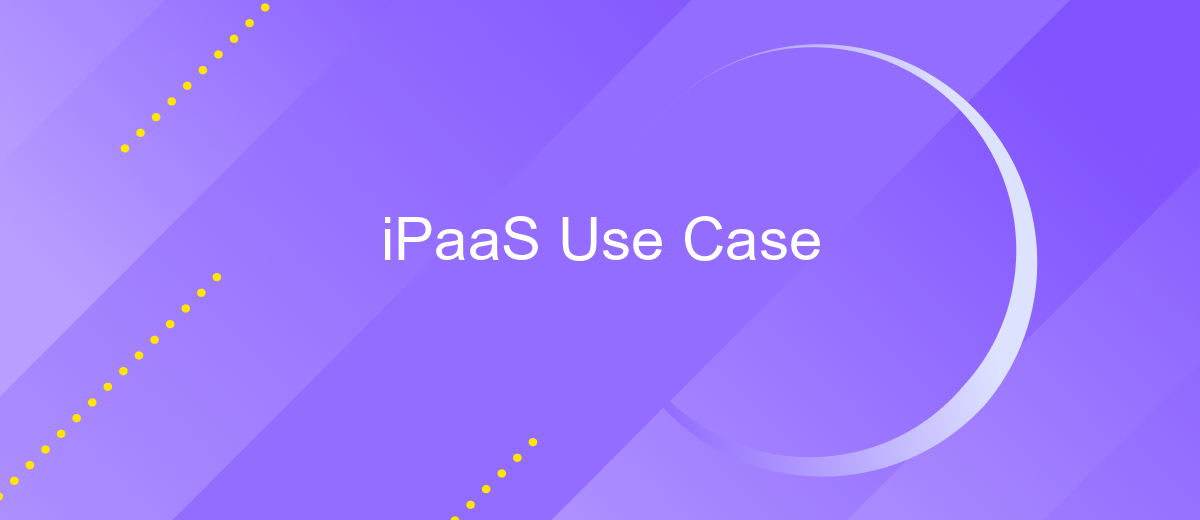iPaaS Use Case
In today's rapidly evolving digital landscape, Integration Platform as a Service (iPaaS) has emerged as a crucial solution for businesses looking to seamlessly connect disparate systems and applications. This article explores key use cases of iPaaS, highlighting how organizations can leverage this technology to enhance operational efficiency, streamline workflows, and drive innovation across various sectors.
Use Case Overview
iPaaS (Integration Platform as a Service) solutions streamline the process of integrating various applications and services, enhancing operational efficiency and data consistency. These platforms are essential for businesses looking to connect disparate systems without extensive coding or manual intervention.
- Automated data synchronization between CRM and ERP systems
- Real-time analytics integration from multiple data sources
- Seamless API management and monitoring
- Efficient workflow automation across different platforms
One notable example is ApiX-Drive, a service that simplifies the integration process by providing a user-friendly interface and pre-built connectors for numerous applications. By leveraging ApiX-Drive, businesses can quickly set up integrations, reduce the need for custom development, and ensure that their systems communicate effectively. This not only saves time but also minimizes the risk of errors and data silos.
Benefits of Using iPaaS

Implementing an Integration Platform as a Service (iPaaS) offers numerous benefits for businesses aiming to streamline their operations. One of the primary advantages is the seamless integration of various applications and data sources, which enhances operational efficiency. By using iPaaS, companies can automate workflows and ensure that data flows smoothly between different systems, reducing manual intervention and minimizing errors. This leads to improved productivity and allows employees to focus on more strategic tasks, rather than getting bogged down by repetitive processes.
Another significant benefit of iPaaS is its scalability and flexibility. Services like ApiX-Drive enable businesses to easily set up and manage integrations without requiring extensive technical expertise. This means that organizations can quickly adapt to changing business needs and integrate new applications as they grow. Additionally, iPaaS solutions often come with robust security measures, ensuring that data is protected during transfer and storage. Overall, adopting iPaaS can lead to cost savings, enhanced agility, and a more resilient IT infrastructure, making it an invaluable tool for modern enterprises.
Common iPaaS Use Cases

iPaaS (Integration Platform as a Service) offers versatile solutions for various business needs, enabling seamless data integration across multiple platforms. Companies leverage iPaaS to streamline operations and enhance productivity through automated workflows.
- Data Integration: iPaaS platforms like ApiX-Drive facilitate the integration of data from disparate sources, ensuring consistency and accuracy across all systems.
- Application Integration: Businesses use iPaaS to connect different applications, such as CRM and ERP systems, allowing for real-time data exchange and improved operational efficiency.
- Process Automation: iPaaS enables the automation of repetitive tasks, reducing manual effort and minimizing the risk of human error. Services like ApiX-Drive provide tools to create automated workflows easily.
- API Management: iPaaS solutions help manage and monitor APIs, ensuring secure and efficient data exchanges. ApiX-Drive offers robust API management capabilities, simplifying the integration process.
- Hybrid Integration: iPaaS supports the integration of on-premise and cloud-based systems, providing a unified platform for managing diverse IT environments.
By leveraging iPaaS solutions, businesses can achieve greater agility and scalability. Platforms like ApiX-Drive play a crucial role in simplifying integration processes, enabling organizations to focus on their core activities and drive innovation.
Challenges and Considerations

Implementing an iPaaS solution can present several challenges and considerations that organizations must address to ensure a successful integration. One of the primary concerns is data security and compliance, as sensitive information is often transferred between systems.
Another significant challenge is ensuring compatibility between different software applications and platforms. Organizations need to thoroughly evaluate their existing infrastructure to identify potential compatibility issues that could hinder integration efforts.
- Data security and compliance
- Compatibility between software applications
- Scalability of the iPaaS solution
- Cost and resource allocation
To mitigate these challenges, services like ApiX-Drive can be instrumental. ApiX-Drive offers a user-friendly interface and robust features that simplify the integration process, ensuring seamless data flow between various applications. By leveraging such tools, organizations can overcome common obstacles and achieve a more efficient and secure integration strategy.
Best Practices for iPaaS Implementation
When implementing an iPaaS solution, it is crucial to start with a clear understanding of your integration needs and objectives. Conduct a thorough assessment to identify the systems and applications that need to be integrated and the data flows between them. Define key performance indicators (KPIs) to measure the success of your implementation. Additionally, choose an iPaaS provider that offers robust support, scalability, and flexibility to accommodate your evolving business requirements. ApiX-Drive, for instance, is a valuable tool that simplifies the integration process by providing pre-built connectors and a user-friendly interface, ensuring seamless data synchronization across platforms.
Another best practice is to establish a governance framework to manage and monitor your integrations effectively. This includes setting up roles and responsibilities, implementing security protocols, and ensuring compliance with relevant regulations. Regularly test and validate your integrations to detect and resolve any issues promptly. Utilize monitoring tools to gain real-time insights into the performance and health of your integrations. Continuous improvement is key; gather feedback from stakeholders and make necessary adjustments to optimize your iPaaS implementation. Leveraging services like ApiX-Drive can significantly streamline these processes, offering automated workflows and real-time alerts to keep your integrations running smoothly.


FAQ
What is iPaaS and how does it work?
What are the common use cases for iPaaS?
How can iPaaS help in automating business processes?
What are the benefits of using iPaaS for integration?
How do you ensure data security when using iPaaS?
Apix-Drive is a simple and efficient system connector that will help you automate routine tasks and optimize business processes. You can save time and money, direct these resources to more important purposes. Test ApiX-Drive and make sure that this tool will relieve your employees and after 5 minutes of settings your business will start working faster.

